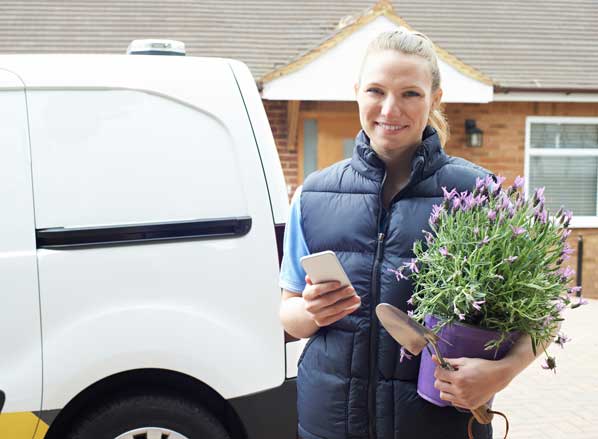
Looking to take your business on the road? Whether it’s a pop-up shop around the country or a travelling food truck, start as you mean to go on and connect with your customers the right way.
Here are 10 steps to launching your mobile business and making it a success.
1. Start off with a carefully considered plan before you do anything. It’s tempting to go all in and start contacting clients straight away, but it won’t get you anywhere unless you’re clear about your aims and goals. Ask yourself what makes your business different. If you can’t think of a solid answer, then you need to think more carefully about this. For example, we’ve all seen burger trucks before, but why not target a wider audience by offering vegan and gluten-free options? Sizing up your competition and checking what their missing is the best way of doing this.
2. Once you have considered the competition and are clear about your unique proposition, you’ll need to think about how to handle the way you’ll work. All of your staff will be on the road with little time to spend away from clients, so you may not be able to keep track of them or their workload using traditional methods. Consider tools that can help with the practicalities of managing a mobile workforce.
3. Just like any business, there’s a lot of paperwork to complete before a mobile business can get off the ground. Don’t leave this to the last minute or you may have to reschedule your launch dates, which would get you off to a bad start. Get in touch with the local council to find out some more information about exactly what you’ll need, but you can find some details on running a food business on GOV.UK for example.
4. As well as the required paperwork, you should register your business name. The name should give an idea of what you’re selling while reflecting what sort of market it’s aimed at. Don’t be too obvious or copy competitors as you’ll need to set yourself apart from anyone else. Not sure which direction to go? Get some inspiration from the Startups website.
5. Don’t rush out and buy the cheapest or first vehicle you can find as it may end up costing you a fortune in the long run. Consider what you need and how far you’ll be traveling before getting in touch with a dealership. For more help with finding the best type of van or truck for your business, click here.
6. As mentioned in the second step, making the most out of technology is vital in a modern world. As well as field management, consider what extras you can offer both your staff and customers before heading out on the road. A card payment machine isn’t just an added feature anymore, it’s considered an essential in modern times. Having one doesn’t just mean carrying less physical cash, it also means customers will find it easier to use your services.
7. No matter what type of service you offer, advertising your business is essential in gaining a loyal customer base. Your vehicle should be bold, reflecting the type of service you offer as well as clearly displaying contact details such as a phone number and web address. Use as many resources as possible, including print advertisements in local papers and reaching out to potential clients on social media.
8. Your staff are the face of the company and reflect its values. Make sure they are willing to travel as well as having a friendly and approachable attitude. Xero’s guide to hiring the right employees mentions the importance of staff sharing your vision to take your business forward. Conduct a friendly but in-depth interview and always look for people who share your passion for excellent customer service.
9. Trial your products and services with the local community before stepping out into a broader area. Starting smaller means you can get some feedback and learn more about what your clients want without the pressure of traveling too much on your first day. You could offer your services to a local community event to get a feel of the market and to get your name out there.
10. Once you’ve hired the right staff and tested the market, have a look at where you want to have your official launch. Whether you’re looking for a couple of permanent spots nearby or heading out on the open road, having a plan of action prevents mishaps. Pick a location where there is demand for your service and that you know well.
About the Author
Debbie Fletcher is an enthusiastic, experienced writer who has written for a range of different magazines and news publications over the years. Graduating from City University London specialising in English Literature, Debbie’s passion for writing has since grown. She loves anything and everything technology, and exploring different cultures across the world. She’s currently looking towards starting her Masters in Comparative Literature in the next few years.




